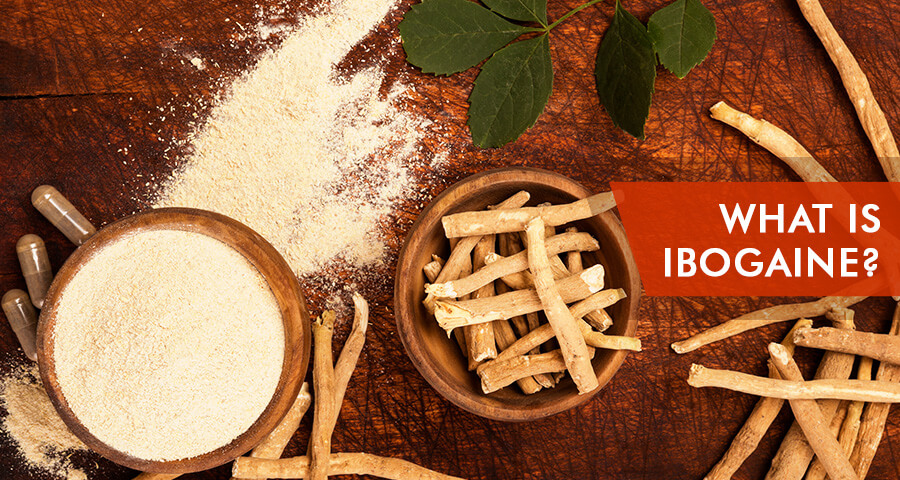
With the opioid epidemic on the rise, many people turn to alternative medications like Ibogaine in an attempt to find a simple cure for their addiction. Although unsupervised consumption of the substance can have dire consequences, the iboga drug also has specific properties that can be medically useful.
Table Of Contents:
What Is Ibogaine?
Ibogaine isn’t a new drug; it is a psychedelic substance that has a relatively rich representation in the media. It leads many people to wonder what Ibogaine is, ibogaine success rate and whether using Ibogaine treatment can help them defeat their addiction.
The drug is derived from a plant called Iboga. Indigenous peoples of Central Africa have been using the plant as a vital part of their religious ceremonies for decades. These days, researchers worldwide strive to understand the true potential of Iboga in addiction treatment and incorporate it safely into rehabilitation programs.
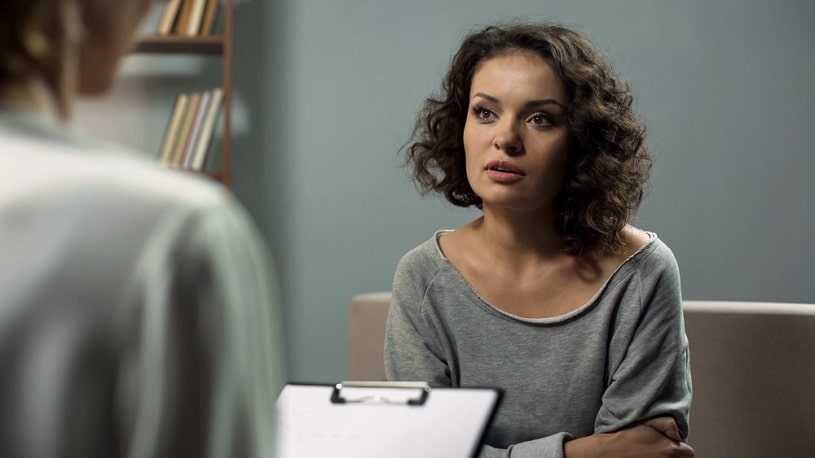
More About Illicit Drugs:
In the US, it is a Schedule I controlled substance due to its psychoactive properties and various side effects. Iboga is classified as a drug with a high potential for abuse. However, researchers report that it might become a good alternative to withdrawal medications that sometimes cause secondary addiction, as the iboga drug itself is thought to be non-addictive.
Although the plant is legal in several countries, individuals should get familiar with the US classification before rushing to look for Ibogaine for sale.
In the United States, Iboga is illegal to possess, use, or be distributed.
How Does Ibogaine Work?
Ibogaine has been used in Africa as medicine for centuries. However, it was not until the 1990s that the National Institute on Drug Abuse began funding studies on its safety, effects on the user’s health, and therapeutic impact. While they terminated their studies on Ibogaine therapy in 1995, others continued examining the use of the drug, determining that it did have legitimate therapeutic applications in assisting with addiction management.
However, research on Ibogaine treatment is minimal. New and old Clinical observations indicate that it is effective and safe at alleviating withdrawal symptoms when stopping the use of opioid medications and cocaine. But clinical observations are not the gold standard of research, and there is much more that needs to be done to affirm that those experiences are universal.
Just as the drug’s effectiveness is not well documented, it is unclear exactly how Iboga for addiction treatment—or other applications—works.
Some claim that it is an opioid antagonist, but this does not account for all its effects on the body. Some clinics advocating for addiction treatment with the drug even claim that it rewires the addiction zone of the brain.
Ultimately, claims that it does work are mostly just observational or anecdotal, and how it works is still not well understood.
Ibogaine Treatment and Uses
Despite the efficacy of Ibogaine therapy and its mechanism of action not being well researched, the drug is used to treat various conditions, depending on the country.
In the United States, Iboga has been banned since 1967, making the possession of Iboga, or even Iboga seeds, illegal. In addition, it is classified as a Schedule I drug by the DEA, which means it has no acceptable therapeutic application and a high risk of abuse and addiction. However, other countries see things differently and allow Ibogaine treatment.
Ibogaine For Opiate Addiction
The primary application for Ibogaine therapy has been in the management of opiate withdrawal and addiction. When taking Ibogaine for opiate addiction, the drug is delivered intravenously, often in a single dose. Ibogaine treatment for opiate withdrawal sees the typical symptoms significantly lessen or even disappear.
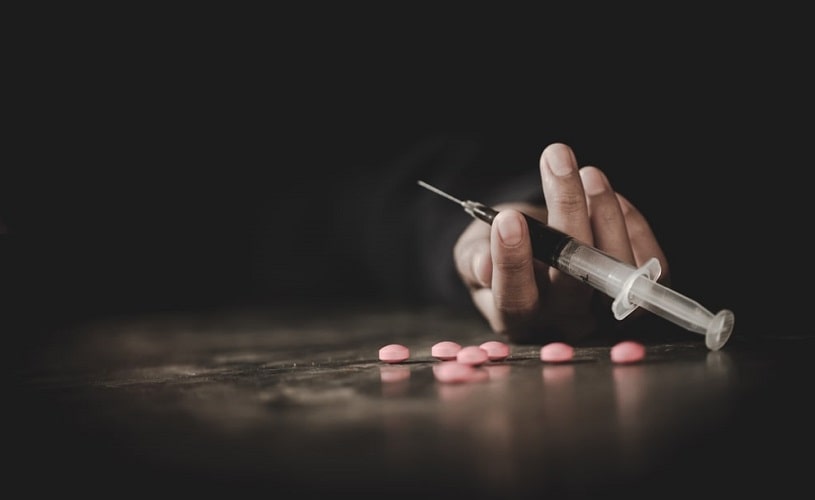
Additionally, drug-seeking behavior is also curbed after the treatment. Some claim that this reduction in the desire to abuse drugs can last as long as several years after using one dose of Ibogaine treatment. Others argue that it is not that the drug cures addiction, but rather that it improves mental plasticity through the production of GDNF (glial cell line-derived neurotrophic factor), allowing drug addiction therapy to be more effective.
Ibogaine For Alcoholism
The use of Ibogaine treatment for addiction to alcohol is similar to that for opiate addiction. The drug reduces or eliminates the symptoms associated with alcohol withdrawal while also making it easier for the user to stay clean over the long term. Ibogaine for opiate addiction is administered intravenously and should be followed up with rehabilitation therapy.
Ibogaine For Depression
As stated before, research on this substance for addiction is limited. When it comes to Ibogaine treatment use in the treatment of depression, it is scarce, too. Even though it was used as an antidepressant in France for decades, few have done significant studies on its use.
Iboga as an antidepressant was ultimately banned in France due to significant adverse effects. However, it was also believed to have a positive impact on depression.
Ibogaine Success Rate
Since this isn’t a new drug and is used as an alternative treatment for addiction with psychedelic properties of its own, there aren’t many studies on it yet that support its safety for the user’s health and ibogaine success rates. However, the few that have been done show promising results.
A 2016 study described a case of a 37-year-old woman with a history of close to 2 decades of heavy opioid abuse. The study showed that a four-day treatment with this drug achieved 18 months of abstinence. The longest she was able to abstain before trying this drug was only two months.
Another study from 2013 included 75 subjects that were routine drug and alcohol users. It showed that the subjects given one round of treatment could easily abstain without any extra help or support for an average of 5.5 months. However, the subjects that were given multiple rounds of treatment could abstain for a long time, 8.4 months, without any help or support with other medical treatments!

Both of these studies alone show a lot of promise with the ibogaine success rate. Although there is yet to be further research on Ibogaine therapy, not many new conclusive studies have been done in 2021 to support its level of safety for the user’s health.
Risks Associated With Treatment
While the benefits of Ibogaine therapy are hotly debated, even proponents of the drug acknowledge that it comes with significant risks. While most people who have Iboga experiences in therapy report that all was well, the dangers of the drug are why it is illegal in many places, including countries where it was once acceptable to use.
Apart from the run-of-the-mill side effects like lightheadedness and nausea, a few dangerous reactions can occur while the patient uses the drug or ends up abusing it. These can include things like motor impairment for up to 24 hours after the drug is ingested. Then, even weeks after the treatment, cerebral cell loss, cardiac arrest, brain swelling, or even death.
Iboga Deaths
Iboga deaths have been reported, both from recreational use and supervised Iboga therapy. The death rate from Iboga use is not well tracked.
Research published in the Journal of Forensic Sciences in 2012 claims that only 19 people died from using the drug between 1990 and 2008.
At the same time, The Guardian states that the death rate is 1 per every 400 users.
Ultimately, what can be definitively said is that death is possible. And until the drug, its effects, and its risks are better understood, Iboga legality will remain up in the air.
Anyone considering using the drug illegally on their own or seeking treatment in other countries should exercise extreme caution.
Ibogaine Side Effects
Ibogaine effects include altered consciousness, possible hallucinations, and lack of regular coordination of muscle movements, among many others. These symptoms are expected to occur. However, some iboga effects can be hazardous.
The Common Side Effects Include:
- nausea
- vomiting
- dry mouth
- low blood pressure
Severe Side Effects
The most significant side effects are cardiotoxicity and neurotoxicity. It is usually taken by mouth, and the doses are quite large, putting a user at risk of cardiac arrest and sudden death. For this reason, iboga centers insist on continuous monitoring of their patients for the duration of the treatment. It is highly risky to use the drug without medical supervision.
Other Severe Symptoms Might Include:
- irregular heartbeat
- cardiac arrest
- seizures
- sudden death
- mania psychosis
Ibogaine Alternatives
As of 2021, Ibogaine is still a Schedule I controlled substance in the US. Since it has a high chance of addiction and has psychedelic effects, it can cause the patient to “swap addictions” instead. It also comes with a wide range of potentially lethal or life-threatening side effects, and since there aren’t many conclusive studies on it as of 2021 that prove its safety, it isn’t a widely used substance for addiction treatment. Furthermore, possession, sale, transport, and cultivation are all still illegal in the US.
Although there are some alternatives to Iboga, a person should be cautious when trying them out and get medical help if they begin experiencing persistent adverse effects.
Iboga vs. Ayahuasca
Ayahuasca brew is a traditional element of spiritual ceremonies among the indigenous peoples of the Amazon basin. Ayahuasca is sometimes used as an alternative to ibogaine HCL. The debate of Iboga vs. Ayahuasca has continued for a long time. The psychedelic properties of the two drugs differ, however. Iboga might be more suitable for addiction treatment, as it is linked with discovery and facing one’s problems, while Ayahuasca is associated with a generally more pleasurable experience.
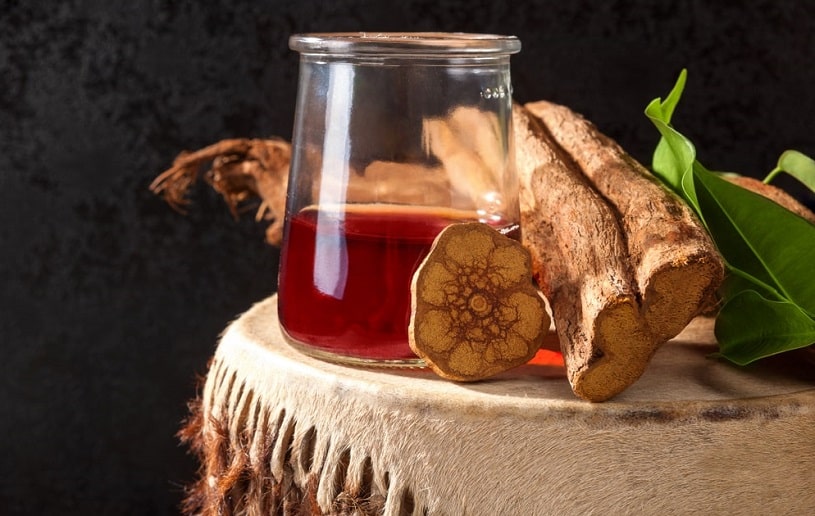
Ayahuasca also contains DMT, which is illegal in the US, so it’s hard to find this drug legally, and it’s not recommended to buy it illegally because there’s no guarantee of what it may be laced with. So far, there are minimal studies on the therapeutic use of Ayahuasca, even though it and Iboga are usually talked about together. There are some studies that prove Iboga can be a viable addiction treatment, while there are only some signs of Ayahuasca being the same. The Iboga vs. Ayahuasca debate may continue until definitive proof is found to be significantly better than the other.
Iboga vs. Kratom
Just as there’s a comparison of Iboga vs. Ayahuasca, there’s also a comparison of it with Kratom. Kratom is an alternative to iboga. Patients who try to overcome their addiction with the help of Iboga strive to resolve the underlying mental issues during an ibogaine HCL trip. Kratom, in its turn, eases opioid withdrawal symptoms. Although, it is essential to note that there’s also minimal research on Kratom being effective as an addiction treatment. It also comes with a probability of addiction itself and a range of side effects. Kratom isn’t federally regulated in the US, and in some states, it is illegal. So the status of it being legal or not depends on the state. With how many side effects this drug has, it’s unlikely that it’s safer than Iboga, but there aren’t conclusive studies on their side by side yet either.
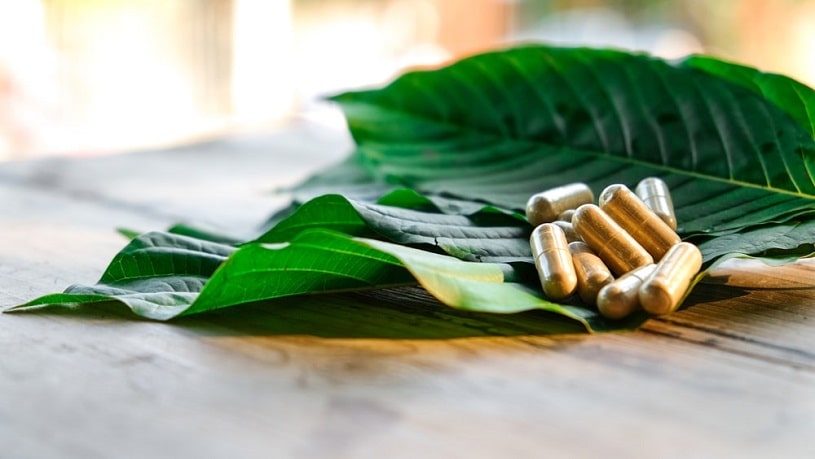
Considering the lack of studies and research, it may be better for the patient to not experiment with unpredictable drugs like these and opt for traditional approved treatment in rehab instead. That way, they can ensure that they have a team of medical health professionals working around the clock, making sure they don’t experience any adverse side effects and stay safe.
Ibogaine Potential For Abuse
Iboga addiction is a poorly researched subject. The drug is a weak µ-opioid receptor agonist, meaning it produces effects similar to those of opioid drugs. However, it is not enough to cause withdrawal effects when a person stops using the substance.
Still, Iboga is unlikely to cause physical dependence. However, it’s only a starting point of addiction treatment. A person still has to put a lot of effort into learning healthy coping mechanisms and staying clean. It may be easier for some patients to rely on the drug instead of tackling the mental issues behind their addiction. This way, ibogaine addiction may have psychological nature.
Dangers Of Addiction
As with any other drug, ibogaine addiction may be signaled by compulsive and excessive use of the substance. A person might also experience minor cravings after a period of abstinence from the drug.
Not First-Place Drug For Addiction Treatment
Ibogaine hydrochloride is a substance with potent psychedelic properties. Found in the plant iboga, it may be used as a part of drug addiction treatment. While studies suggest that there are potential medical benefits to using the drug to fight addiction, it is not an approved medicine and illegal in the US. Iboga treatment, however, is legally available in other countries, including Mexico and Canada. Still, because of a lack of good, evidence-based research on the drug properties, it is better to consider the conventional rehabilitation center in the first place.
While Ibogaine may seem like a miracle cure, the only way to beat addiction is to do the hard work.
Anyone who wants to get clean should contact an addiction rehab center near them. There, they will be able to access proven and safe methods for saying no to drugs.
Hope Without Commitment
Find the best treatment options. Call our free and confidential helpline
Most private insurances accepted
Find Drug Rehabilitation Centers Near You Anywhere In the US
Addiction Resource team has compiled an extensive list of the top drug rehabilitation facilities around the country. Use our locator tool to find the best centers near you.
Page Sources
- Mash, D. C., Duque, L., Page, B., & Allen-Ferdinand, K. (2018). Ibogaine Detoxification Transitions Opioid and Cocaine Abusers Between Dependence and Abstinence: Clinical Observations and Treatment Outcomes. Frontiers in pharmacology, 9, 529. https://www.ncbi.nlm.nih.gov/pmc/articles/PMC5996271/
- Alper, K. R., Lotsof, H. S., Frenken, G. M., Luciano, D. J., & Bastiaans, J. (1999). Treatment of acute opioid withdrawal with ibogaine. The American journal on addictions, 8(3), 234–242. https://pubmed.ncbi.nlm.nih.gov/10506904/
- Cloutier-Gill, L., Wood, E., Millar, T., Ferris, C., & Eugenia Socias, M. (2016). Remission of Severe Opioid Use Disorder with Ibogaine: A Case Report. Journal of psychoactive drugs, 48(3), 214–217.https://pubmed.ncbi.nlm.nih.gov/27192438/
- Schenberg, E. E., de Castro Comis, M. A., Chaves, B. R., & da Silveira, D. X. (2014). Treating drug dependence with the aid of ibogaine: a retrospective study. Journal of psychopharmacology (Oxford, England), 28(11), 993–1000. https://pubmed.ncbi.nlm.nih.gov/25271214/
- Belgers, M., Leenaars, M., Homberg, J. R., Ritskes-Hoitinga, M., Schellekens, A. F., & Hooijmans, C. R. (2016). Ibogaine and addiction in the animal model, a systematic review and meta-analysis. Translational psychiatry, 6(5), e826. https://pubmed.ncbi.nlm.nih.gov/27244235/
- Alper, K. R., Stajić, M., & Gill, J. R. (2012). Fatalities temporally associated with the ingestion of ibogaine. Journal of forensic sciences, 57(2), 398–412. https://pubmed.ncbi.nlm.nih.gov/22268458/
- Litjens, R. P., & Brunt, T. M. (2016). How toxic is ibogaine?. Clinical toxicology (Philadelphia, Pa.), 54(4), 297–302. https://pubmed.ncbi.nlm.nih.gov/26807959/
- U.S. Department of Justice, Drug Enforcement Administration, Lists of: Scheduling Actions, Controlled Substances, Regulated Chemicals https://www.deadiversion.usdoj.gov/schedules/orangebook/orangebook.pdf
- Hamill, J., Hallak, J., Dursun, S. M., & Baker, G. (2019). Ayahuasca: Psychological and Physiologic Effects, Pharmacology and Potential Uses in Addiction and Mental Illness. Current neuropharmacology, 17(2), 108–128. https://www.ncbi.nlm.nih.gov/pmc/articles/PMC6343205/
- National Institute on Drug Abuse; National Institutes of Health; U.S. Department of Health and Human Services. Kratom DrugFacts, https://www.drugabuse.gov/publications/drugfacts/kratom


 Reviewed by:
Reviewed by:  Written by:
Written by: 


 FindTreatment.gov
FindTreatment.gov